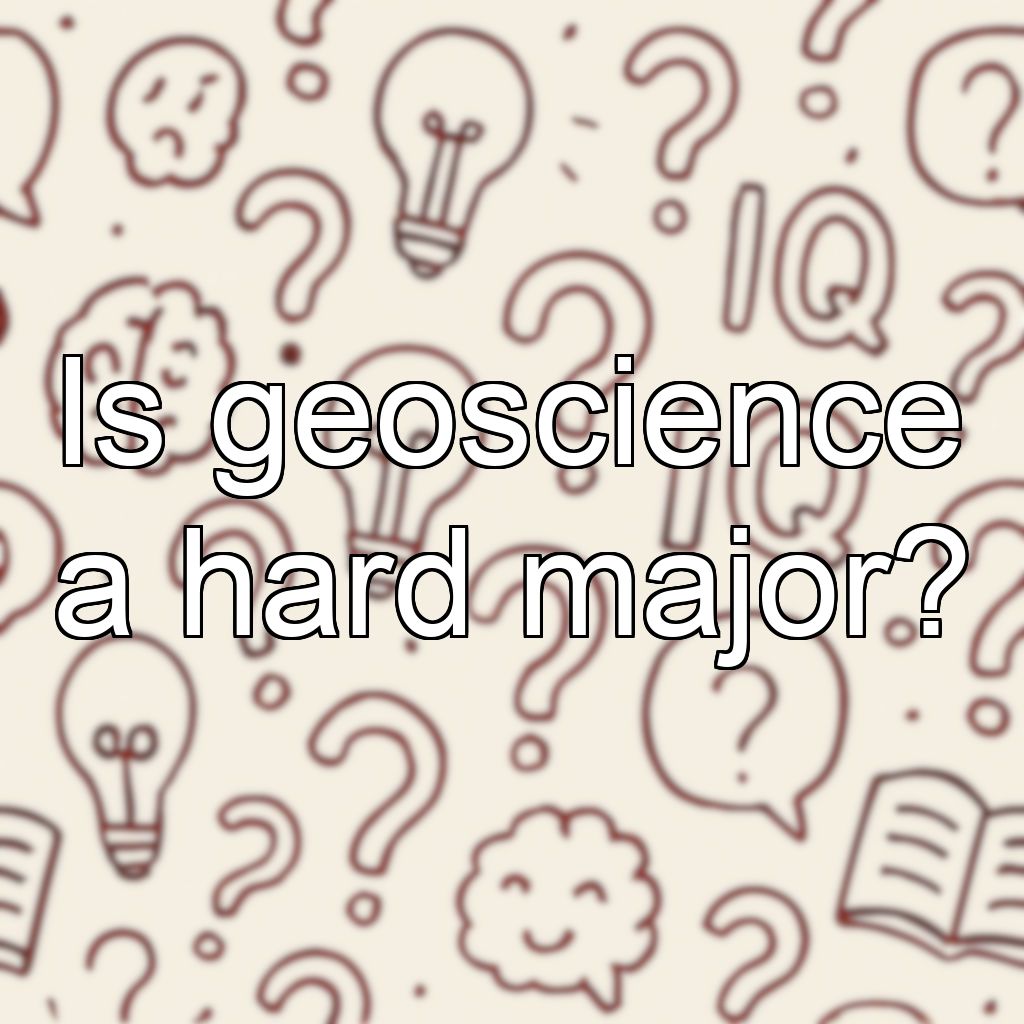Is geoscience a hard major?

Is Geoscience a Hard Major?
Geoscience (or Earth Science) is a diverse field that studies the Earth, including its structure, processes, history, and natural resources. The perceived difficulty of a geoscience major can depend on your interests, academic strengths, and preparedness, but here are some key factors to consider:
- Interdisciplinary Nature: Geoscience combines elements from biology, chemistry, physics, mathematics, and environmental science. This means students must be comfortable with concepts and skills from a range of scientific disciplines.
- Fieldwork Requirements: Many geoscience programs include significant fieldwork, such as mapping, rock/mineral identification, and data collection outdoors. This can be physically demanding but is also rewarding for those who enjoy hands-on learning and being outdoors.
- Analytical Skills: Students often analyze complex data sets, use specialized software, and interpret scientific literature. Strong quantitative and critical thinking skills are helpful.
- Coursework: Core courses typically include geology, mineralogy, paleontology, geophysics, hydrology, and environmental science. Advanced courses may require laboratory work and research projects.
- Math and Science Foundation: A solid background in math and science, particularly chemistry and physics, is advantageous and sometimes required for upper-level courses.
Summary
Geoscience can be challenging, especially for those who are not comfortable with science or math. However, for students with an interest in the Earth, nature, and scientific inquiry, it can be a highly engaging and rewarding major. Like any field, motivation and passion can make the learning process much more manageable and enjoyable.